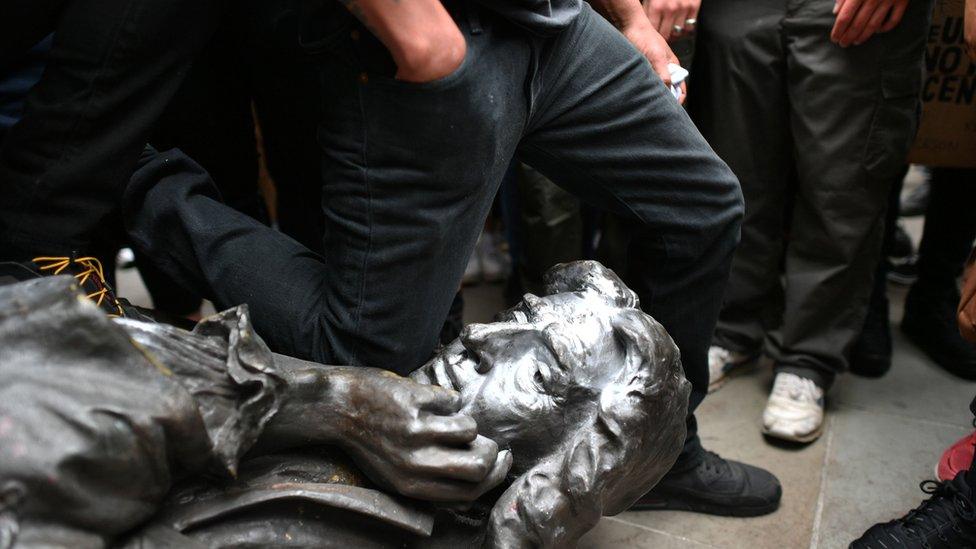Black women share insight into changing face of policing
- Published
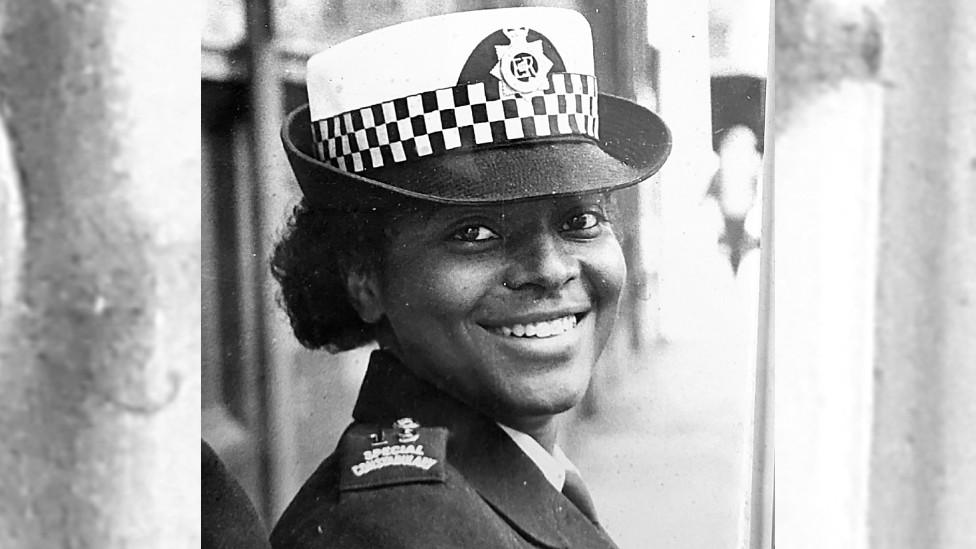
Beverley Douglas was Avon and Somerset's first black female Special Constable
The experience of being a black woman in the police in Bristol has changed drastically in the past 40 years.
Here three black women - Beverley Douglas, the first black female Special Constable, Adora Pomphrey, the first female black police officer in the force, and Ayesha Giles, who is the current most senior officer - talk to Osob Elmi about their experiences.
Beverley Douglas joined Avon and Somerset police in 1983 and, after more than three decades, she retired in 2017.
Born in Bristol in 1964, to Jamaican parents, she was five when her family moved to Easton.
She describes herself as "a strong, black, powerful woman" from a family of strong black females.
"When I was in my 20s, politically, it was chaotic and not just for me," she said.
"We were in changing times and we had to move with the times."
When Beverley joined the force, she faced challenges surrounding community perceptions and described the job as "difficult at times".
"My dad struggled, my mum struggled with racism and so forth and it wasn't going to happen to me.
"It's about knowing your worth and you have to have faith and believe in yourself," she said.
"For me it was important that I was highly visible and people saw me."
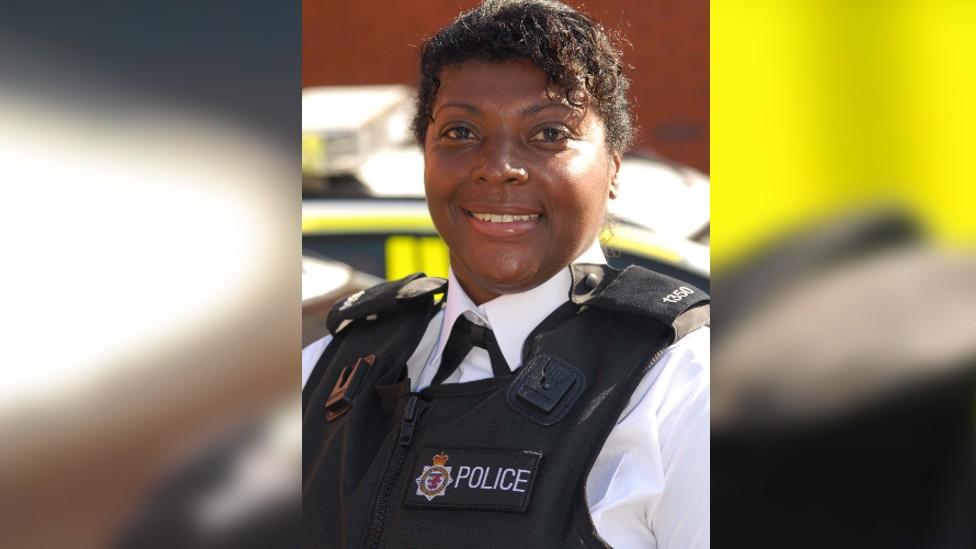
After three decades of an "enjoyable and sometimes challenging" career, Beverley Douglas retired in 2017
Inspired by the film Private Benjamin, she was initially drawn to the discipline offered by the army but life took her in the direction of policing instead.
"The job just fitted my personality," she said.
"It allowed me to express myself, it allowed me to be assertive when I needed to be and it allowed me to be vulnerable and weak and use those qualities to help other people."
Beverley worked on the front line for several years before becoming a tutor constable and mentor where she advocated that people "be the change they want to see".
"You're not going to achieve anything by sitting on the couch," she said.
"You have to be part of an organisation and be representative of the communities that you come from.
"Back in the day, communities didn't like the fact that I was doing the job I was doing and how individuals had been treated by the police.
"I was lucky that I never experienced any negatives.
"However, I am mindful that other people did and because of that communities didn't necessarily like the fact that I was a police officer and it wasn't easy.
"It was very difficult at times."
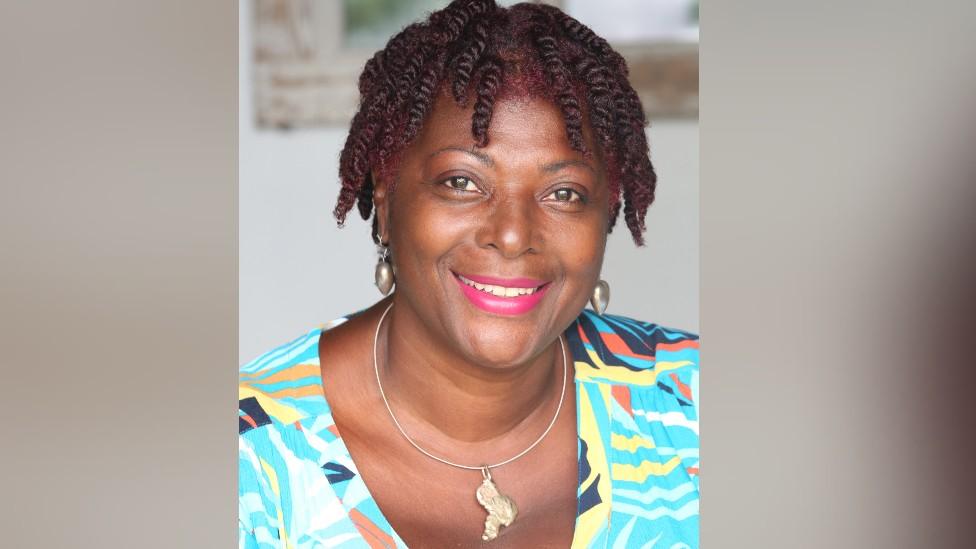
Beverley Douglas wrote a book called 'Cutie' based on her life and working in the police force
Recalling diversity in the police force in her time, Beverley felt she was among the "movers and shakers" for women officers.
"They (the police force) really worked on promoting females and equality and diversity and that's why I remained in the job because I saw that change happening. I was part of that change.
"Not just me but the Black Police Association, we were integral in bringing Avon and Somerset Police into the 21st Century without a doubt.
"There may have been only a few of us but we were certainly movers and shakers and influencers and more importantly, the job listened to us."
She was an active member of the police staff associations and worked closely with Bristol City Council and many community projects.
Her last posting was school beat manager at Fairfield High School.
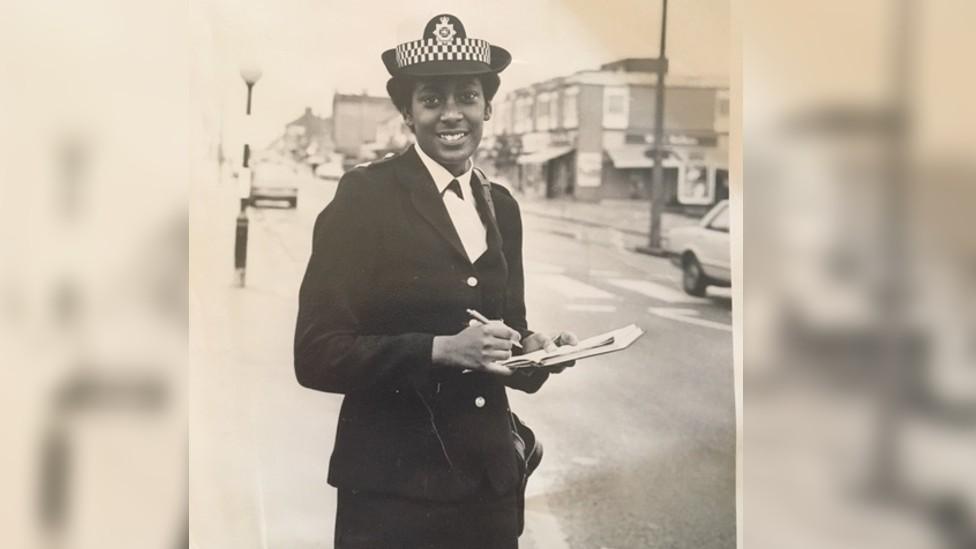
Adora Pomphrey joined Avon and Somerset Police at the age of 19 in 1980
Adora Pomphrey, 60, can also be considered a pioneer as she became the first female black police officer in the Avon and Somerset Police force after joining in 1980 at the age of 19.
Being the "first" meant "others up and coming would have a stepping stone," she said.
She lived in Bath but started on the beat in Staple Hill and said she had not faced any prejudice before joining the police.
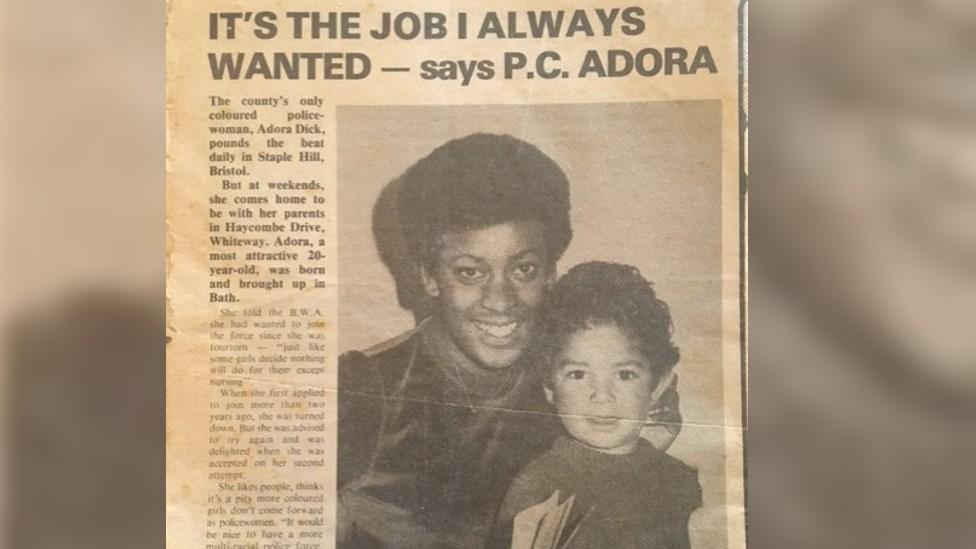
Despite Adora's dislike of media attention, she was "pushed" to engage in interviews and felt "the token black officer"
However, joining during the year of the St Paul's Riots was a tense time with a lot of distrust between Bristol's ethnic minority communities and the force.
Adora also experienced some hostility from colleagues.
"The trouble was, I was too young and couldn't really stand up for myself," she said.
"It was obviously a male-dominated job and the majority of people were lovely but there were a few people that weren't nice and would make comments.
"There was one particular sergeant that didn't like me and he made it quite obvious.
"He would often make little cutting comments to try to embarrass me in front of other people and people would laugh and I didn't have the courage to stand up for myself."
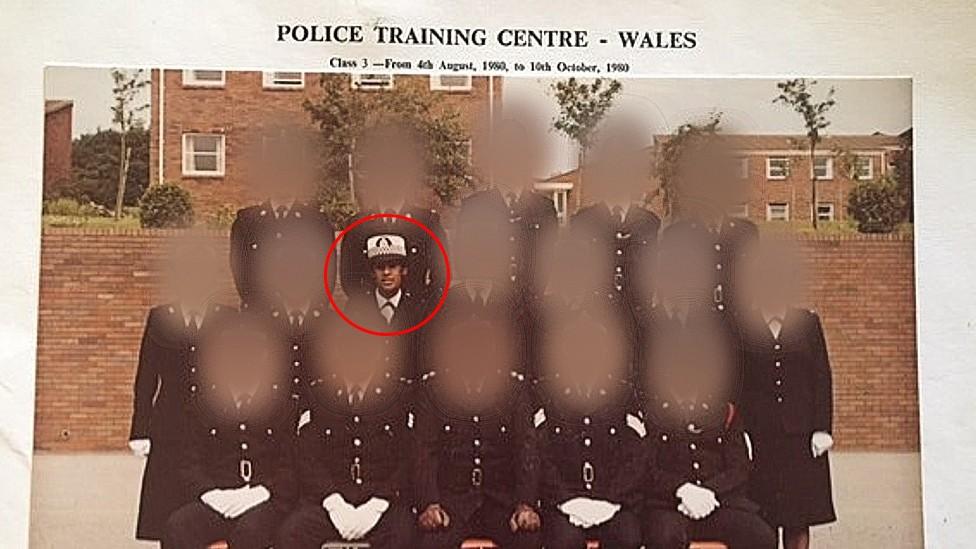
Adora Pomphrey (circled) suffered discrimination from some colleagues as the force's first black female officer
Adora says she injured herself playing netball once and needed to wear a Tubigrip support on her leg.
"I walked in the office one day and he said, 'Well at least part of you is white'".
"He had no reason to dislike me but he made it obvious."
She remembers struggling with a lack of confidence especially in interviews and "feeling uncomfortable" with the media attention she received.
"I wasn't confident enough to stand up for myself," she said.
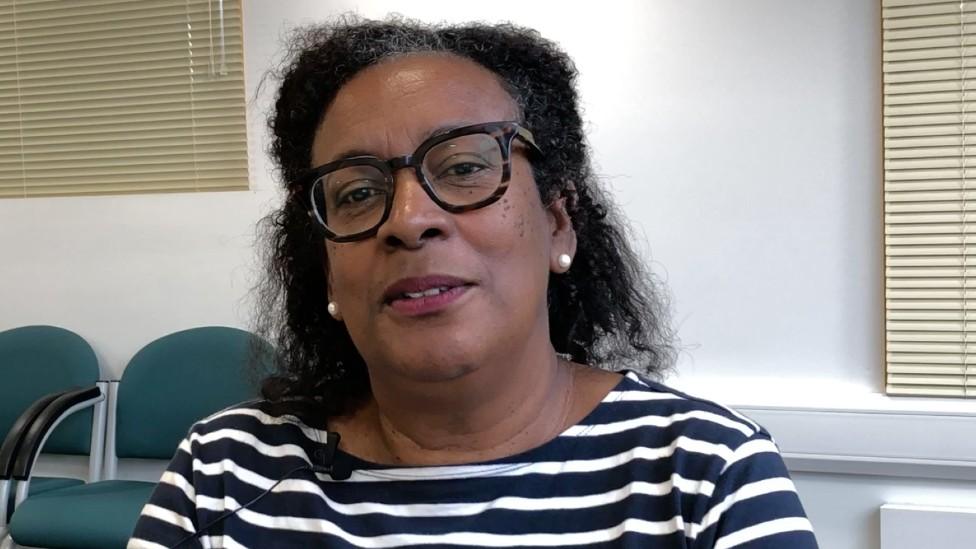
Adora Pomphrey retired in 1991 after serving in the force for 19 years
For Ayesha Giles, 39, Adora and Beverley's contribution meant that she was "standing on the shoulders of giants".
As Detective Chief Inspector in Counter Corruption in Avon and Somerset Police, Ayesha has risen through the ranks.
She joined the police in 2004 and began in the Burglary Squad after two years on the force's patrol team.
Born and raised in St Pauls, to a Jamaican father who came over to the UK as part of the Windrush generation, she recalls her early life as "traumatic".
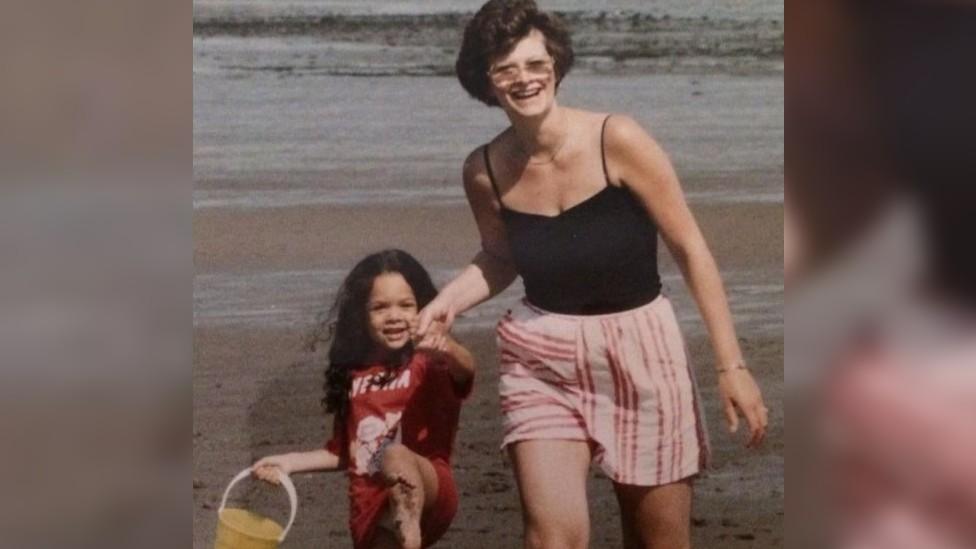
Ayesha (left) with her mother who motivated her to join the police force
She said her early life experiences were part of her "motivation to support our vulnerable people".
Representation has been key to the role Ayesha has played in the police force.
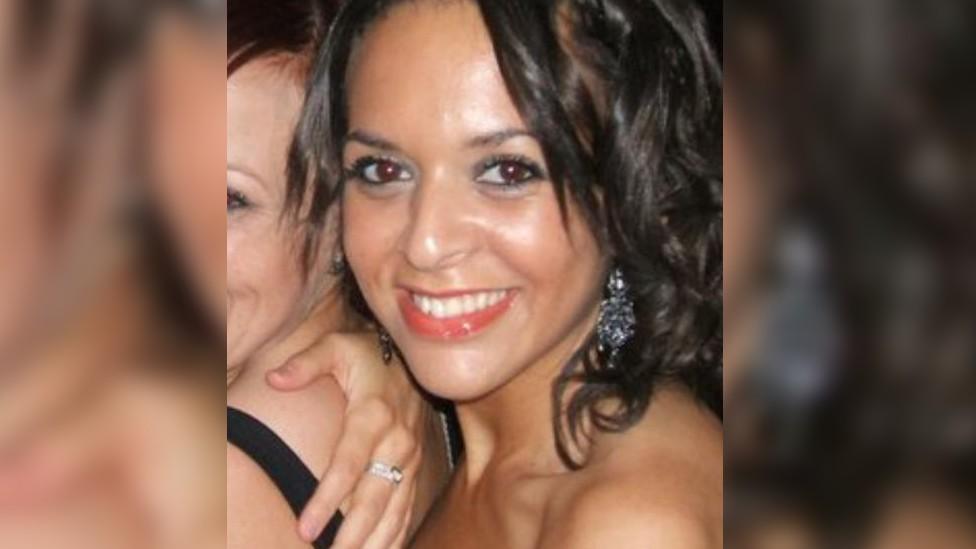
Ayesha Giles is of mixed heritage and is often seen as "racially ambiguous"
"I recognise the value of... seeing police officers that look like you," she said.
Ayesha has been passionate about policing and the difference she felt the organisation was making to the community.
But becoming a detective was where she felt she could "make the biggest difference".
Ayesha joined the Bristol Investigations Team after passing her detective exams.
She said she enjoyed making a difference to people who had "suffered some of the most serious incidents".
Shortly after passing her sergeant exams, she was promoted to Detective Inspector.
"I joined after finishing my uni degree in Psychology and Criminology," she said.
"My knowledge of policing was limited and I had never met a police officer so the role seemed exciting and challenging," she said.
"Now, I honestly cannot imagine doing another role.
"I am in a really privileged position that I can hopefully show people that they can join the police as officer or staff," she added.
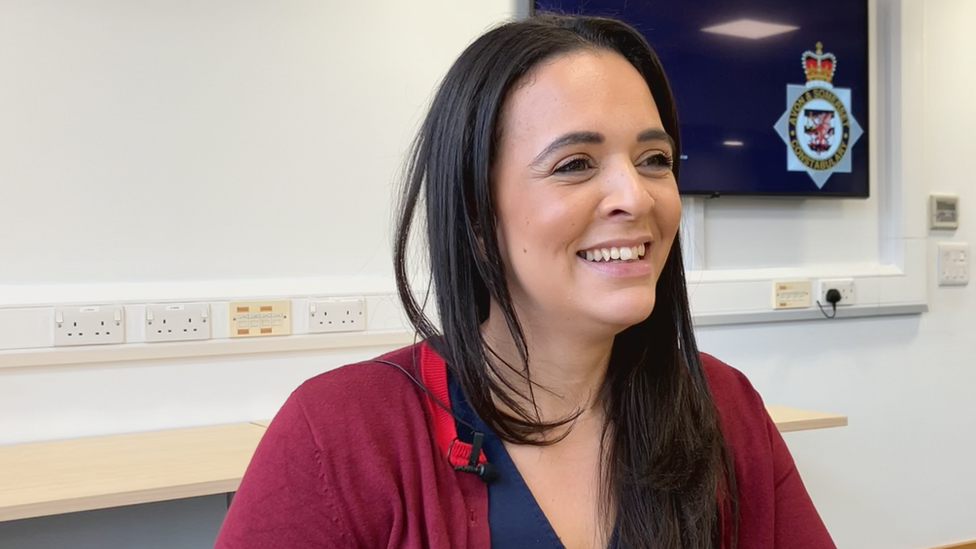
Ayesha was in the first cohort of the very first BAME Leadership Programme that launched in September 2020
Avon and Somerset police has introduced a number of programmes to increase diversity within the force.
These include the development of an anti-racism strategy and a reverse mentoring programme set up to allow officers and staff from all areas of the organisation to learn from the lived experiences of other staff.
It has also developed a team of "lived experience advisors" who work with the professional standards department to offer new perspectives on complaints and misconduct investigations.
Figures released by Avon and Somerset Police show in 2020 the number of black female staff recruited in the force was 2.89%, in 2021 it was 3.05% and in 2022 it was 3.23%.
The combination is made up of officers, staff, PCSOs and special constables.
A spokesperson for the force said: "The figures are moving in the right direction but we still have a lot further to go."
Tuesday 31 January: We have amended one part of this story following feedback from the family involved.

Follow BBC West on Facebook, external, Twitter, external and Instagram, external. Send your story ideas to: bristol@bbc.co.uk
- Published3 October 2020
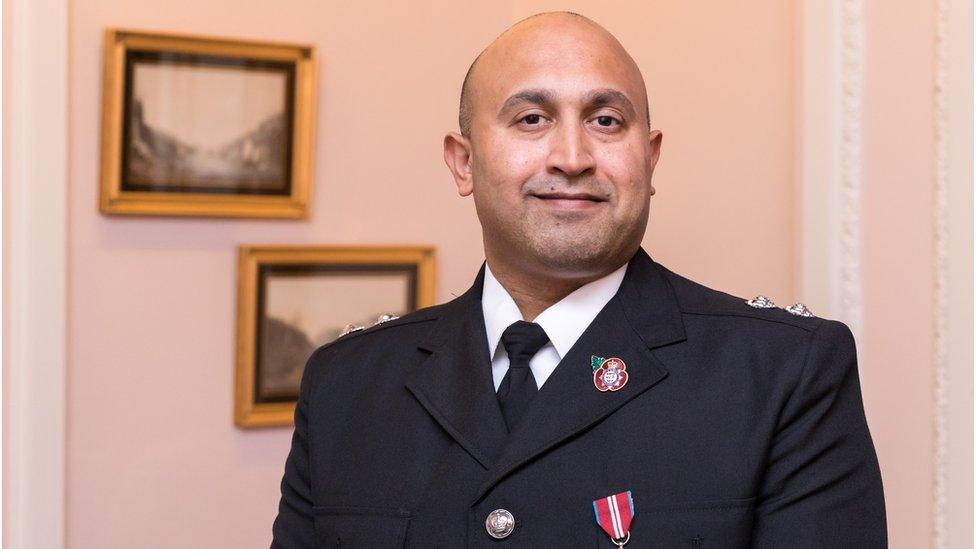
- Published14 June 2020
